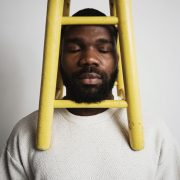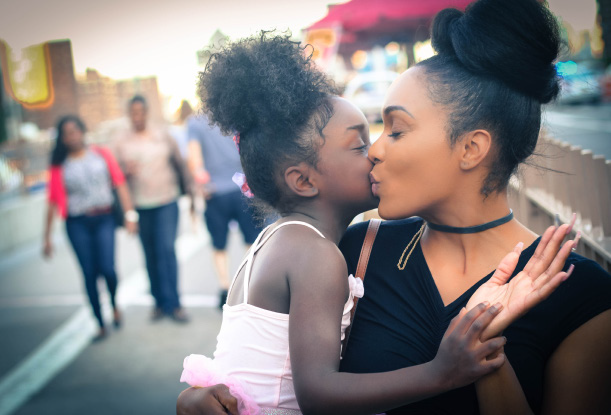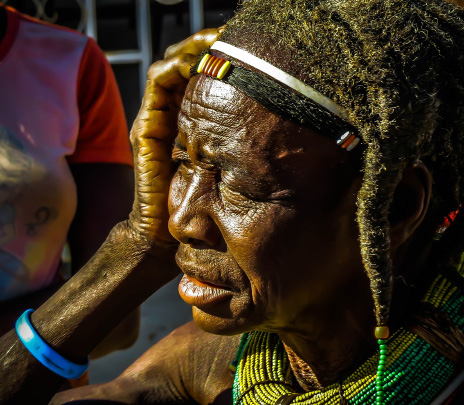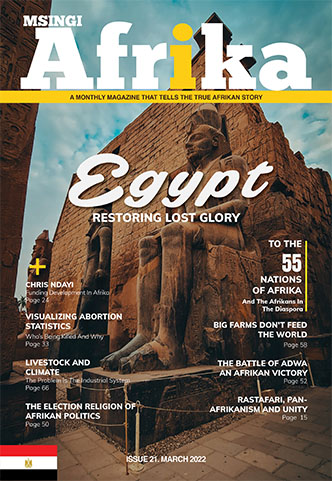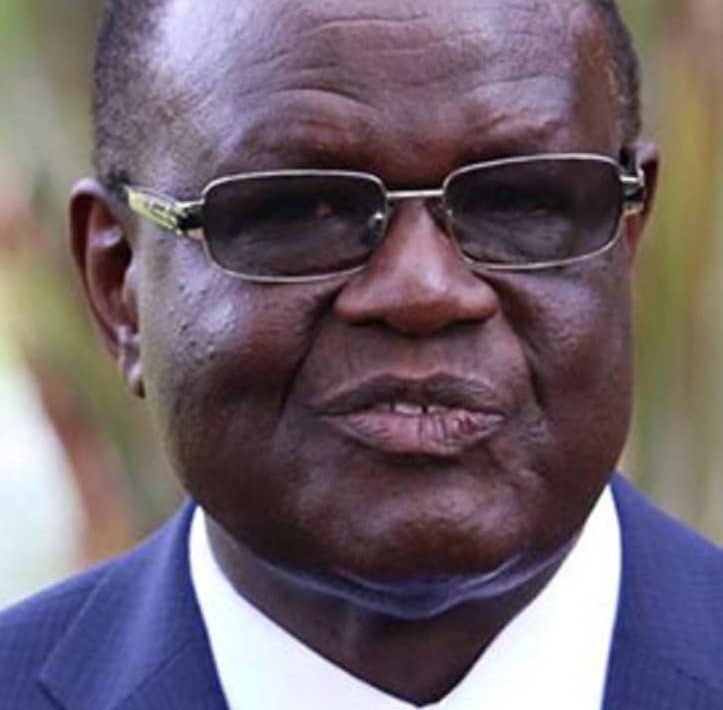Free but in Chains
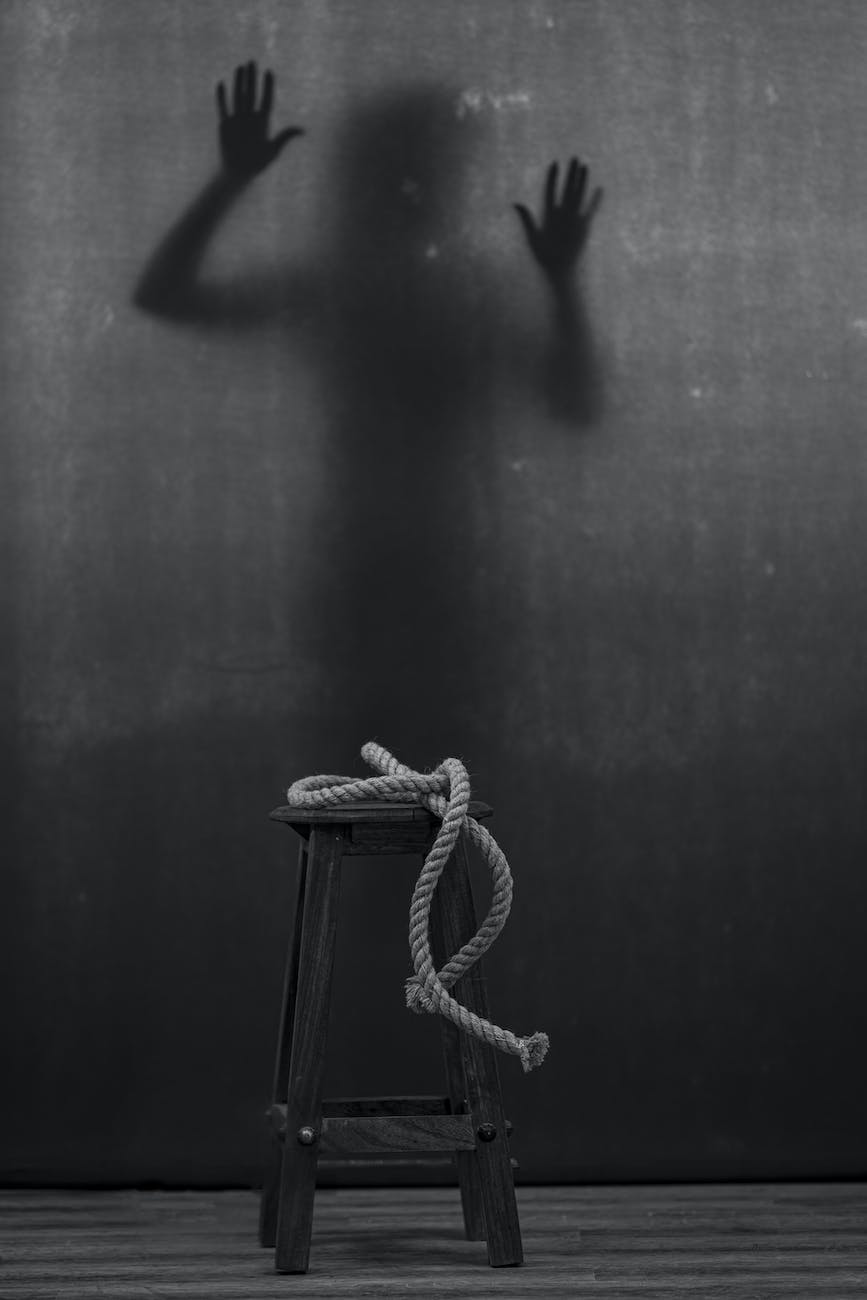
Abel Merawi is from Addis Ababa. He is an English…
Part II: Social Bondage

Our identity seems to be forever entwined with the society we join during the lottery of birth. We are nurtured by parents who are also a part of society. From this coincidence, we drive the definition of our identity with reference to race, culture, ancestral history, religion and holistic societal values. The freedom we are born with quickly fades away as we get dressed and suffocated in layers of the aforementioned identities. In this manner, we play no role in the facts that surround our birth, and most live out the rest of their lives displaying and even defending this identity. Years of educational indoctrination only tighten the social bondage because it is fashioned to uphold the social values by adjusting young minds to existing reality. This endless cycle continues from one generation to another, unless and until a brave deviant starts to critically examine it.
This article is an attempt to embody the examination of life found in the great philosophers like Socrates. The somewhat negative portrayal of society, in relation to morality, is written in the spirit of Nietzsche. However, the solutions do not, primarily, come from existential philosophers but from the freedom fighters and justice advocates such as Martin Luther King, Jr., James Baldwin and Dr. Cornel West. In Ethiopia too, we find the same spirit in the artistic works of Laureate Tsegaye Gebremedihin and Dagnachew Worku. When this defiance and intolerance of injustice and immorality is translated into action, in our generation, we find it in the founder of ‘Omo Child’, the great Lale Labuko.
The social bondage in which the individual finds oneself after birth is both a blessing and a curse. It is a blessing since it is the way we learn from a rich past experience and build up the future. But not everything we inherit from society is nourishing. At times, the crop of society requires weeding and clearing before harvest. Put another way, society welcomes its new members with racial, cultural and religious values, which sometimes are chains, in the name of morality. Society reigns supreme until someone, from within, dares to question it. This is when the multitude shows its dark side. That great Athenian, Socrates, had faced death for he deemed the unexamined life unworthy. Socrates was accused of heresy against the gods for corrupting the youth because he questioned the Athenian dogmatic life. A person becomes a threat to society upon putting morality in jeopardy.
In order to see how society becomes a threat to individuality and freedom, we shall examine the meaning of morality. In an attempt to understand morality, I turn to Friedrich Nietzsche and his book, ‘Beyond Good and Evil’. Nietzsche argues that morality is always discussed in relation to the collective. In other words, the individual is expected to sacrifice oneself for others so as to be considered morally good. He argues, “High and independent spirituality, the will to stand alone, even a powerful reason are experienced as dangers; everything that elevates an individual above the herd and intimidates the neighbor is henceforth called evil.” This means the individual is expected to adhere and conform to the existing societal standards. This means the oppressed should continue to be oppressed as in the case of slavery. The effort of people surrounding the child is aimed at taming natural inclinations. Nietzsche boldly claims, “And like the father, teachers, classes, priests, and princes still see, even today, in every new human being an unproblematic opportunity for another possession.” Alas! Every social institution attempts to possess the child, so that one simply becomes an obedient member.
A dominant display of social bondage is found in racial identity. Currently, we hear the disturbed and delusional cry of people who seek to assert their ethnic, racial or national identity. This would have been welcomed if only it was not conducted at the expense of others. Consequently, every person is presented with a choice between individuality and group identity. The current division in Ethiopia attests to this unreal reality. Unreal for it is based on mystical narrations; reality as it inflicted pain on the innocent. James Baldwin diagnosed this issue in his 1962 book, ‘The Fire Next Time’ as he stated, “The glorification of one race and the consequent debasement of another—or others—always has been and always will be a recipe for murder.” Verily, history is packed with the atrocities of racial conflict. Sadly, we refuse to learn from history as we cling to herd mentality instead of individuality. Friedrich Nietzscheexpressed it well upon saying, “Madness is rare in individuals – but in groups, parties, nations, and ages it is the rule.” Once again, freedom is a choice, and here it is a choice between truth and blind loyalty. Such blind and unquestioning loyalty is also true in religion.
The inclusion of religion into social identity may be confusing. However, I defend this proposition by arguing that the same religion is shaped and remodeled as it enters different societies. The way Christian and Muslim religions are practiced differently in Ethiopia when compared to the practice in the Middle East or in the West. This is because religion goes through cultural transformation as it enters society. Christianity has given birth to the shameful Spanish Inquisition in the 15th century. Currently, the West cherry-picks terrorists, ignores the more than 99% peaceful Muslims, and creates a narration of Islamic extremism. This is possible only through social fabrics that accept or reject such narratives. Perhaps, the Rohingya crisis best illustrates this point. Buddhism is a religion of peace that even protects helpless life forms, even insects. Yet, the Buddhists in Rakhine State continue to systematically discriminate, violently oppress and make stateless the Rohingya Muslims. To solve such crimes, individuals must first free themselves from religious and societal shackles and become advocates of justice and fairness.
As societal moral standards are dominant, it is crucial to have individuals who serve as pathfinders. Lale Labuko is such an individual who shines as a paragon of social change. Lale Labuko grew up in Dus Village of the Kara Tribe. In the region of Omo River, Mingi is a traditional practice. Briefly stated, Mingi is the practice of purging society of children born with ‘abnormalities’, such as top teeth erupting before bottom teeth. The fate of children born out of wedlock was similar. According to Mingi, these children should be killed to purify the tribe and prevent the wrath of the higher powers. Lale Labuko was 15-years-old when he witnessed Mingi. He refused to justify such practice and in 2012, he started his work by saving an innocent child who was considered Mingi for being born out of wedlock. With the film-maker John Rowe, he founded the ‘Omo Child Shelter’ and until now he has saved 50 children. He also educates his community and proves to be successful. Amazingly, he does not feel hatred towards his community who are simply victims of tradition. His is an example of defiance; resisting adherence to social practices by choosing justice and truth instead. Lale Labuko didn’t succumb to tribal mentality, but became a beacon of hope.
The lives of Socrates, Lale Labuko and James Baldwin speak of individuality and courage against social anomalies. Each of us begins life with the force of social bondage. But we can rise above it and be free. We can make the dream of Martin Luther King, Jr. a reality by judging people by the content of their character rather than the color of their skin. As Dr. Cornel West, we can be the voice of the oppressed by surpassing racial barriers. And as writers, we can champion the truth by criticizing social ills as Dagnachew Worku did in his classics, ‘Adefres’ and ‘The Thirteenth Sun’. The path to freedom is evident in Laureate Tsegaye Gebremedihin in his poem ‘Abren Zim Enibel’ (Let’s Together Be Silent). In this poem, he shows how we should depart from the hustle and the noise of the crowd. In meditative solitary, we do the soul searching that frees us from social bondage so we can engage in optimistically active change.
Read part one here
What's Your Reaction?
Abel Merawi is from Addis Ababa. He is an English literature teacher, freelance writer/reporter for Ezega.com and an Amharic-English translator and editor. He also writes for www.msingiafrikamagazine.com. You can reach him via: abelmerawi4@gmail.com








